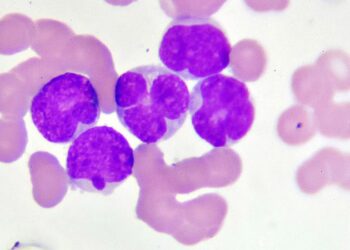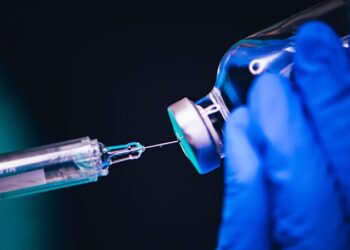Activation of the body’s opioid system may be required for ketamine’s antidepressant effects, new research hinted.
In a small study of adults with major depressive disorder, taking the opioid blocker naltrexone before a low-dose ketamine infusion both blunted the surge in glutamate — a key brain chemical linked to mood — and reduced ketamine’s rapid antidepressant benefit the next day.
“These results suggest that opioid receptors help mediate ketamine’s effects and that blocking opioid receptors may lessen ketamine’s acute mood-lifting action,” lead researcher Luke Jelen, MBBS, clinical lecturer in psychiatry, King’s College London, London, England, told Medscape Medical News.
“However, this was a small, mechanistic study, not a treatment trial, so there is no immediate indication to change clinical practice or avoid naltrexone. Larger, dedicated clinical studies are required before recommending any alteration to current protocols,” Jelen cautioned.
The study was published online on July 24 in Nature Medicine.
New Mechanistic Insights
Ketamine’s rapid-acting antidepressant effects are thought to work by transiently elevating glutamate in the anterior cingulate cortex and other frontal regions, setting off a cascade of plasticity-related pathways.
Prior animal and small human studies have suggested that activating mu-opioid receptors might be necessary for ketamine’s mood benefits.
To investigate, Jelen and colleagues enrolled 26 adults with moderate-to-severe depression in a randomized double-blind crossover trial separated by 3 weeks.
Participants received either oral placebo or 50 mg naltrexone 1 hour before receiving intravenous ketamine (0.5 mg/kg).
During the first 30 minutes of each infusion, they measured brain glutamatergic activity in the anterior cingulate cortex using functional magnetic resonance spectroscopy. Depressive symptoms were measured before and 24 hours after infusion, when ketamine’s antidepressant effects peak, using the Montgomery-Åsberg Depression Rating Scale (MADRS).
Compared with placebo, pretreatment with a single 50-mg dose of oral naltrexone reduced the brain’s glutamatergic response and dampened the average improvement on MADRS measured 24 hours later, the researchers observed.
Specifically, the glutamate signal climbed significantly during ketamine when participants had taken placebo, but the rise was significantly smaller when they had taken naltrexone (P = .029; Cohen’s d = 0.34).
“We also identified a sex-related effect: The attenuating effect of naltrexone on glutamate activity appeared more pronounced in males with depression than in females with depression,” Jelen said.
Alongside the attenuation of ketamine-induced glutamatergic activity, naltrexone pretreatment also led to less marked reductions in clinician-rated MADRS scores 24 hours after infusion — equating to a 28% attenuation in the main effect of ketamine (P = .023), the researchers reported.
Reductions in self-reported depressive measures were numerically lower in the presence of naltrexone than in the presence of placebo, but the differences were not statistically significant.
“The possibility of an opioid mechanism underlying the antidepressant mechanisms of ketamine has been a recent subject of considerable debate. Our study provides evidence that opioid system activation may contribute to the acute antidepressant effects of ketamine,” the authors wrote.
Looking ahead, Jelen told Medscape Medical News, a larger, well-powered study should include a true placebo-infusion arm to disentangle naltrexone’s effects on both ketamine and placebo responses.
He also noted that adding PET imaging would directly quantify opioid-receptor engagement, and prespecified analyses by sex are essential, given the stronger glutamate-dampening effect observed in men.
“Understanding more about how ketamine works can lead to treatment being personalized for different people, which is vital for creating safe and effective treatments,” Jelen said.
The study had no commercial funding. Jelen had no relevant disclosures.
Source link : https://www.medscape.com/viewarticle/ketamines-antidepressant-action-may-depend-opioid-system-2025a1000kq7?src=rss
Author :
Publish date : 2025-08-05 08:50:00
Copyright for syndicated content belongs to the linked Source.














